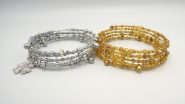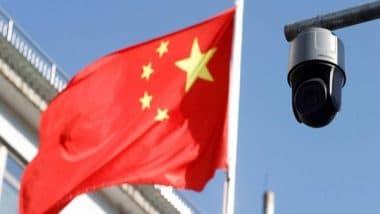Hong Kong, December 3, (ANI): Mainland Chinese shoppers are once again flocking to stores in Hong Kong, but this time, their focus is on purchasing sanitary towels and other feminine care products, rather than infant formula, cooking oil, or Yakult drinks.
This shift in shopping habits is driven by concerns over reports of contaminated and discoloured cotton fillings in similar products sold in mainland China. These safety issues have led many consumers to seek alternatives in Hong Kong, where the quality is perceived to be more reliable, Radio Free Asia reported.
Also Read | Intel CEO Pat Gelsinger Retires and Steps Down From Board of Directors.
A shopper from Guangzhou, interviewed by Radio Free Asia, explained that she felt more confident buying sanitary products in Hong Kong because they meet guaranteed safety standards. "I'm not as worried about using them," she said.
According to the report, another shopper, who wished to remain anonymous, expressed dissatisfaction with the quality of mainland Chinese sanitary towels and stated she no longer buys them there, opting instead to purchase them in Hong Kong.
In China, over 340 million women between the ages of 15 and 49 use sanitary napkins, with the market for these products valued at approximately 98 billion yuan (USD 13.4 billion).
However, many women in mainland China remain distrustful of feminine care products made locally. This scepticism stems from a series of public health scandals involving Chinese companies in recent years, which have included incidents such as Sudan Red contamination in food, melamine-tainted milk, recycled "gutter" cooking oil, and cadmium-contaminated rice.
"It's a trending topic on Douyin right now that some sanitary towels aren't long enough," said a Shenzhen resident, who only gave her surname Shen due to fear of retaliation, in a recent interview with RFA.
"Some are said to be unsanitary, with fillings that appear black when light is shone on them."
The report further said after complaints surfaced on social media platforms like Douyin and Xiaohongshu, government-backed media outlet The Paper tested 24 different brands and discovered that 88 per cent of them were at least a centimetre (0.4 inches) shorter than their advertised length. Chinese industry standards permit a discrepancy of up to 4per cent, which could account for a difference of 10-15 millimetres, suggesting that these discrepancies may not be illegal.
RFA reported that social media users have conducted their private laboratory tests on Chinese-made feminine care products, discovering that many items on the market contain excessive levels of bacteria, and harmful chemicals, or have incorrect pH levels. These issues could potentially harm women's health, leading to conditions such as bacterial vaginosis and pelvic inflammatory disease.
These findings have prompted many women to turn to social media in search of "safe" brands, leading to a surge in sellers claiming to offer sanitary products made in Hong Kong and Japan.
Sanitary products available in stores like Hong Kong's Watson's are often manufactured in Hong Kong or Japan, where safety standards are much stricter.
In one social media video, a customer service representative from a feminine products manufacturer, ABC, told a dissatisfied customer, "If you don't think this is acceptable, you don't have to buy them."
Following public outrage on social media, the company's products were removed from the shelves of its Tmall flagship store.
Several Chinese companies have publicly apologized, and ABC has expressed regret for its "inappropriate" customer service response, according to multiple media sources. (ANI)
(The above story is verified and authored by ANI staff, ANI is South Asia's leading multimedia news agency with over 100 bureaus in India, South Asia and across the globe. ANI brings the latest news on Politics and Current Affairs in India & around the World, Sports, Health, Fitness, Entertainment, & News. The views appearing in the above post do not reflect the opinions of LatestLY)













 Quickly
Quickly


